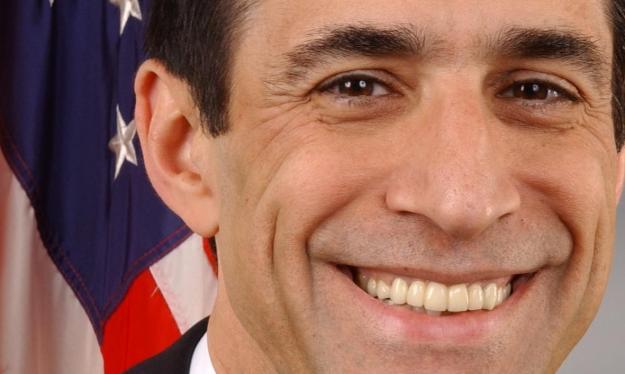
Late Monday, U.S. House Representative Darrell Issa (R-CA-49) became the first congressman to sign the “Declaration of Internet Freedom,” a petition created by anti-SOPA Web activists to help kick off an “open Internet” movement. Issa joins more than 1000 companies, civil liberty organizations, academics, and entrepreneurs who have signed the Internet freedom pact since it first launched early this month.

Issa’s signature on the Declaration comes as no surprise. The congressman was one of the most vocal opponents of SOPA, the controversial Stop Online Piracy Act that was removed from Congressional consideration in January following mass online protests. And last month, Issa published a “Digital Citizens Bill of Rights,” a document that echos many of the same ideals as the Declaration of Internet Freedom, including Web openness, a right to Internet access, and privacy online.
Neither the Declaration of Internet Freedom nor Issa’s Digital Citizens Bill of Rights are finished texts; instead they are broadly-worded, living documents, created to be discussed, remixed, revised, and refined by Internet users at large. As Josh Levy, Internet campaign director of Free Press, one of the lead organizations behind the Declaration, told Digital Trends, “At this point, [the Declaration is] a set of suggested principles drafted by a lot of the people that were essential to the fight to stop SOPA and PIPA. And it’s kind of our vision of what Internet freedom looks like, and what we should be fighting for. We see this as the start of a long-term campaign to prompt this discussion among the public, and to get every-day Internet users — may of whom took action on SOPA and PIPA — to think about the political nature of the Internet and why it should be protected.”
While Issa is the first Congressman to sign the Declaration, he is not the first in Congress to declare Internet freedom a priority. Late last week, Sen. Rand Paul (R-KY) and his father, U.S. presidential candidate Rep. Ron Paul (R-TX) put their hefty libertarian credentials behind a “manifesto” entitled “The Technology Revolution,” which aims to keep the governments’ hands entirely off the Internet.
“The revolution is occurring around the world,” the document reads. “It is occurring in the private sector, not the public sector. It is occurring despite wrongheaded attempts by governments to micromanage markets through disastrous industrial policy. And it is driven by the Internet, the single greatest catalyst in history for individual liberty and free markets.”
Though the goal may be the same, the approach differs from the aims of the Declaration and Issa’s Digital Citizens’ Bill of Right. The latter documents outline a mission that seeks establish laws that will protect the open Web from government intrusion. The Pauls’ want no government action at all.


